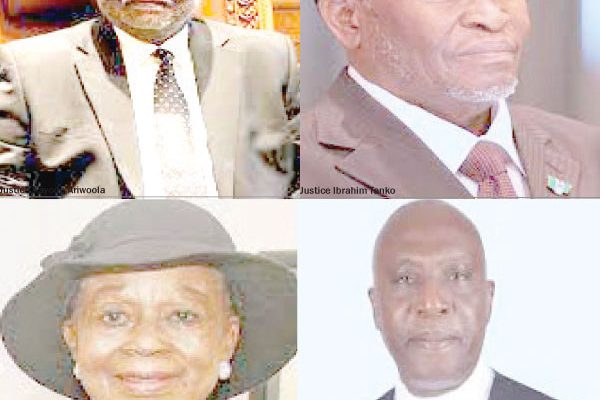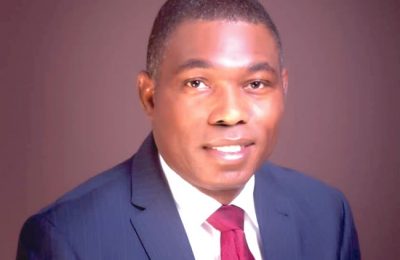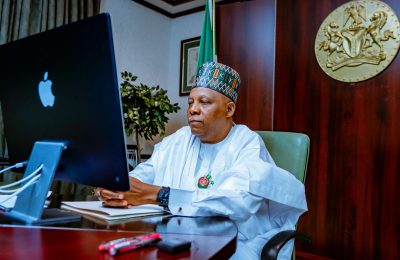LANRE ADEWOLE ties up the numbers to dissect the worries about the future of the Silk.
After becoming the first Chief Justice of modern-era to sit the full complement of the Supreme Court, leading Nigeria’s jurist, Olukayode Ariwoola has made another history with the largest one-time appointment into the Inner Bar, 21 days to his exit from office.
On August 1, a statement from the Legal Practitioners’ Privileges Committee (LLPC) which he chairs, cleared 87 legal practitioners for the award of the rank of Senior Advocate of Nigeria (SAN) for 2024, in what would be the single largest number ever to be pushed for the prestigious title in the legal community.

The holders are referred to as members of the Inner Bar and receive privileges such as reserved seating in the front rows of all courts and priority in hearing their cases. They are also distinguished by their attire, known as “silk,” which differs from the standard gown worn by other lawyers.
Secretary of the LPPC, Hajo Sarki Bello, who is also the Chief Registrar of the Supreme Court, said the list of new SAN designates was approved at the LPPC’s 164th plenary meeting, chaired by Ariwoola.
Despite being the appointor, the outgoing CJN will however not have the honour of swearing them in as he will be bowing out of office exactly 15 days from today.
The swearing-in ceremony for the 87 successful candidates is already scheduled for 30th September, during the special court session marking the commencement of the Supreme Court’s new legal year.

It is expected to take place at the Supreme Court, with Ariwoola’s successor-in-office, presiding.
Everything points at Justice Kudirat Kekere-Ekun succeeding the Iseyin-born incumbent.
After throwing in another big number of 58 new SANs in 2023 and with his retirement looming, many in judicial circle had expected Ariwoola would do his successor the honour of running the appointment process since he would not be around to swear the new Silk in. But the incumbent completed the appointment process, to bring his total appointments to the Inner Bar to a whopping 207, which is also another unprecedented mark, despite spending just a total of 26 months in office, both in acting and substantive capacities.
Justice Lawal Uwais, now retired, is the longest serving CJN of the structured era, spending about 11 years in office and just second behind all-time longest-serving CJN, Ademola Adetokunbo, who did 14 years in office, between 1958 and 1972.
Yet his cumulative appointments to the Inner Bar as the LLPC chairman, were far behind Ariwoola’s numbers, which were raked in just three rounds of appointment, the third being inchoate as it were, since the incoming CJN could still tamper with the list if fresh evidence and facts of practice misconduct should come up against any of the new appointees.
The LPPC as constituted is any CJN’s arena, considering his/her expansive influence in the appointment of the members.
Statutorily, the LPPC is headed by the Chief Justice of Nigeria, CJN, while its members consist of the Attorney-General of the Federation, one Justice of the Supreme Court (chosen by the CJN and AGF for a term of two years, renewable on one occasion only), the President of the Court of Appeal, five Chief Judges of the States (chosen by the CJN for a term of two years renewable on one occasion only), the Chief Judge of the Federal High Court, as well as five SANs who are equally chosen by the CJN for a term of two years, renewable on one occasion only.
A SAN’s case is called first except when there is a judgement.
Moreso, as an amicus curie and a member of the ‘Inner Bar’, a SAN can comfortably offer a piece of advice to a sitting Judge with a view to guiding the court properly, hence the idea of sitting them in the front rows.
It is on record that Chief F.R.A Williams and Dr Nabo Graham-Douglas were the first set of legal practitioners in Nigeria that were on April 3, 1975, conferred with the title of SAN.
As of 2011 when Aloysius Katsina-Alu was the CJN, there were 344 SANs in Nigeria, before another 32 were added after a battle between the Nigerian Bar Association under Joe Daudu’s leadership and LPPC.
In settling their dispute out of court, the parties agreed to merge two sets of 2010 and 2011 together, resulting in 15 each for the two years. The extra two were from the academia, according to then LPPC’s Secretary and Chief Registrar of the Supreme Court, Sunday Olorundahunsi, now a judge of High Court, Ondo Division.
It would appear that Katsina-Alu was sticking with the tradition established by Uwais who also played by lean numbers of SAN appointment throughout his lengthy stay in office.
Even at the twilight of his tenure when he could do a big number as a parting gift, which is widely seen as influence-buying by CJNs who appoint dozens of SANs in a swoop, Uwais stuck to the 15 silks-per-annum.
In 2005, when 150 legal practitioners applied for the title, LPPC under Uwais would not yield to the temptation of more than 15, coming to just 10 percent of the total application.
Even one of them, Kemi Pinheiro was temporarily dropped due to alleged practice misconduct.
A decade later, in 2015, CJN Mahmud Mohammed as chair of the appointing committee would only add five, to bring the number of the new Silk for the set to 20.
His immediate successor-in-office, Walter Onnoghen added just nine more slots three years after, with 29 new SANs appointed in 2018.
As of the time, Onnoghen had raised the alarm that legal practitioners had begun to engage in forgery to qualify for consideration. Without mentioning names, Onnoghen who was later acrimoniously exited from office by then-President Muhammadu Buhari, disclosed that those caught in the act of desperation had been handed to law enforcement for appropriate punishment.
Concerned that the prestigious title might be abused and debased with high number of unworthy appointees, first female CJN in Nigeria’s history, Aloma Mariam Mukhtar had caused a review of the Legal Practitioner’s Act, 2004 which she appended on December 16, 2013.
The Act, known as Legal Practitioner’s Act CAP L11 LFN 2004 prescribes guidelines for the conferment of the rank of Senior Advocate of Nigeria.
Part 1 of the Act which deals with Objectives, Principles and Procedures for the appointment of Senior Advocate of Nigeria in its Section 6, reads “The Legal Practitioners’ Privileges Committee may from time to time fix the number of persons to be conferred with the rank of Senior Advocate of Nigeria each year, having regard to the need to maintain the highest standard of excellence and prestige of the rank.”
The Big Ticket
If their predecessors had been somewhat conservative in the management of the appointment procedure especially sticking with lean numbers, disgraced CJN Ibrahim Tanko Muhammad and his successor and incumbent, must have likely chosen to be “progressive” in their appointments to the Inner Bar.
The number they cumulatively raked up in just five years between them, was like a bonanza for aspiring SANs.
Tanko, before he was unceremoniously pushed out by same Buhari, in just two sets of appointment, favoured 110 lawyers. In 2019, he began by adding extra nine, just like Onnoghen, to bring his first total to 38 for the year.
From the next set, everything changed. Tanko’s LPPC first hit a record number of 137 finalists, the highest ever in Nigerian judiciary history, from which a whopping 72 new Silks, were appointed.
Not done, Tanko went for another 130-man shortlist in the next round, prompting a pushback from the Body of Senior Advocates of Nigeria (BOSAN).
In a fiery letter fired to the disgraced CJN, BOSAN warned that unless a holistic review of the award was undertaken by the LPPC, the rank risked losing its prestige and standing among stakeholders.
Dated September 21, 2021 and signed by Prof. Ben Nwabueze (SAN), Chief Folake Solanke (SAN) and BOSAN’s Secretary, Mr. Seyi Sowemimo (SAN), the letter was titled “RE: LEGAL PRACTITIONERS PRIVILEGES COMMITTEE’S LISTING OF 130 LAWYERS AS SHORTLISTED IN THE PROCESS FOR CONFERMENT WITH THE RANK OF SENIOR ADVOCATE OF NIGERIA FOR THE YEAR 2021: REITERATION OF THE BODY OF SENIOR ADVOCATES OF NIGERIA’S (BOSAN) STRONG NOTE OF CONCERN ON THE QUALITY OF THE PROCESS AND PROCEDURE FOR THE CONFERMENT OF THE RANK.”
It was copied to all LPPC members and then Attorney-General & Minister of Justice, Mr. Abubakar Malami (SAN).
BOSAN referenced the CJN’s response to its earlier letter, noting that “Upon receipt of the letter from the Committee, we were hopeful that necessary changes as conveyed in our letter would be implemented to preserve the dignity of the rank of Senior Advocate of Nigeria.”
Expressing disappointment at the development, it said: “However, following the recent announcement of the shortlisting of 130 candidates in the process for conferment with the rank of Senior Advocates of Nigeria, we are of the considered opinion that the concerns raised in our earlier referenced letter have not been addressed.
“It is not willy-nilly that all candidates that meet the set criteria should be appointed in any given year, as such an approach cannot but result in the degradation of the rank. It is those that prove to be outstanding within the shortlist that should be conferred with the rank. This is the time honoured rule applied in relation to admissions to all reputable institutions in situations where competition is high and spaces are limited and where it would be inappropriate to accommodate all those persons who appear to have met the criteria.
“There is even a greater need for more stringent approach in cases where appointments are to be made on the basis of academic accomplishments.
“It has now become necessary that we reiterate, respectfully, the concerns raised in the body’s earlier letter. The members of the Inner bar are concerned that the current procedure and criteria for the conferment of the rank of Senior Advocate of Nigeria would result in a watered-down perception of the rank of Senior Advocate of Nigeria. “We are also of the considered opinion that it is imperative that the Committee pauses and reassesses the procedure and criteria for the conferment of the rank of Senior Advocate of Nigeria as we fear that the process could be reduced to a ‘mere compilation and submission of the listed documentation’ in the next few years, with no attention to excellence or distinction in the practice of law.
“In light of this, we write to reiterate our earlier recommendation that the conferment of the rank of Senior Advocate of Nigeria be put on hold to enable the Committee to conduct and publish a credible and comprehensive review of the process for the conferment of the rank of Senior Advocate of Nigeria.
“We would like to point out that a comprehensive review of the screening process is an urgent and necessary step to retain the dignity, respect, and reverence of the prestigious rank of Senior Advocate of Nigeria and the legal profession in general. The Body of Senior Advocates of Nigeria is still committed to providing its expertise and support at every stage of the review process and we are anticipating a positive feedback and implementation of the recommendations in this letter.”
BOSAN had in same vein condemned the 2020 award process which threw up 72 senior advocates, saying: “BOSAN struggles to understand the rationale for the over 100% increase from the previous year (when 38 were appointed) and a 600% increase from a 45-year average.
“We are dismayed at this out-stepping from the norms and standards established over nearly five decades of our legal history.
“We are of the strong and painful view, and it would appear to many, that the criteria have been whittled down and the bar/benchmark lowered to the extent of defeating the description of excellence as a sine qua non for attaining the prestigious rank.”
In LPPC’s earlier response to BOSAN’s concern, Tanko had said that the Committee considered the raised issues “in detail,” promising a review to strengthen the conferment process.
Subsequent developments suggested otherwise.
Ariwoola’s windfall
Despite being the second in command to Tanko during the back and forth over the SAN award, the incumbent came in as CJN with the same “progressive” mind as his predecessor who he helped the Buhari administration to push out, the same way Tanko assisted the same administration to exit Onnoghen, his own immediate predecessor.
The first silk appointment to be handled by Ariwoola, got 62 lawyers in. He scaled back with 59 last year and when stakeholders thought he was done, he shocked the system with the highest number ever of 87 at a go.
Interestingly, unlike Tanko who eked 72 out of 137, Ariwoola’s 87 came from 98 finalists with just only 11 applicants dropped towards the final count.
A lot of interpretations are being given in judicial circle to the latest unprecedented development with all eyes now on the incoming CJN.
READ ALSO: #EndBadGovernance protests: Flying of Russian flag, calls for military coup treasonable — Police







